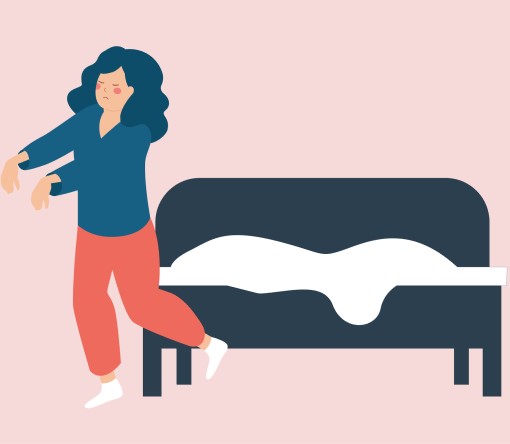
The link between IBS and sleepwalking: What we know and what to try if you suspect it’s an issue
By Jason Wooden, PhD | July 20, 2023
While it’s common for people with IBS to experience sleep disturbances, a link to sleepwalking hasn’t been directly studied. However, they do share some causes and triggers such as stress, anxiety, and poor sleep. Fortunately, there are plenty of practical things you can do if you suspect IBS is causing someone to sleepwalk.
When you have IBS and sleepwalk, the stakes get higher…
I totally get why you’re curious whether there’s a link between IBS and sleepwalking.
IBS by itself is no walk in the park at night.
First, there’s the unpredictable digestive tract whether it’s diarrhea or constipation. Add to the mix bouts of pain and cramping, you’re in for a fun night.
Likewise, sleepwalking can be pretty frustrating too.
Sleepwalkers have been known to do some of the most outrageous (and worrisome) things. They can also unknowingly risk the safety of themselves and others.
(If sleepwalking becomes a recuring issue, that’s bound to ruin someone’s sleep since it’ll keep you on edge worried about what’s going to happen…)
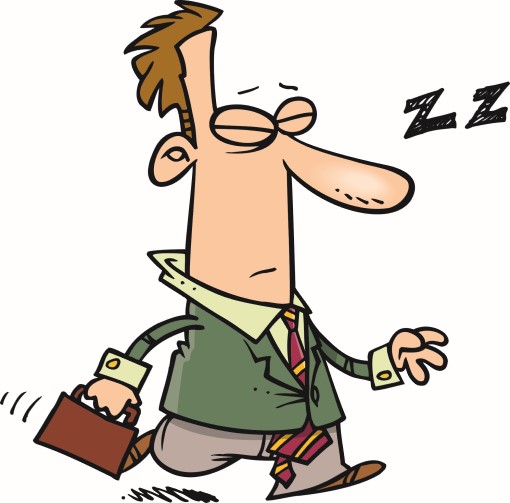
Nonetheless, either one of them alone is frustrating enough. When someone with IBS is sleepwalking, that can add even more unpredictability to your nights.
Fortunately for me, I don’t have IBS nor do I sleepwalk. However, I do deal with the double whammy of sleep apnea and chronic pain which can sometimes make for miserable nights when my shoulder pain flares up.
All the same, you’re likely not the only one curious about a possible link since it’s estimated somewhere around 10% of individuals worldwide struggle with IBS to varying degrees.
The good news is that you do have options if you suspect IBS is triggering sleepwalking episodes.
We’re going take a look at what we know about a possible link and what you can do if it becomes an ongoing concern.
The connection between IBS and sleepwalking
IBS (irritable bowel syndrome) is a condition in which there’s a problem with how the brain and gut work together. It’s because of this disconnect you can get flare ups of abdominal pain and changes in bowel movement.
Sleepwalking, also known as somnambulism, is when someone walks or does other complex things while asleep. It’s an unusual state between wakefulness and sleep. The reasons it happens is not fully understood.
So, with one there’s something wrong with your gut and with the other your body is doing strange things when you sleep.
Is there any evidence that IBS can cause sleepwalking?
IBS has been linked to sleep disturbances including difficulty falling asleep, shorter sleep time, frequent awakenings, and non-restful sleep. In fact, more than a third of IBS patients struggle with poor sleep.
Unfortunately, the link between IBS and sleepwalking hasn’t been directly studied and there’s currently no evidence that one can cause the other. However, they do share some causes and triggers:
Stress and anxiety
Your mind, brain, and body can interact in powerful ways that affect health and wellness. This mind-body connection is true for both IBS and sleepwalking.
Studies show that psychological stress is a risk factor and trigger for IBS. Likewise, anxiety is believed to worsen symptoms in IBS patients.
Stress and anxiety are known risk factors for sleepwalking too. Stress has been found to be a trigger for up to 60% of sleepwalkers.
Poor sleep and being over-tired
Have you gotten behind the eight ball on sleep and find yourself dragging? Studies show that poor sleep can worsen IBS symptoms. Likewise, sleep-deprived people are believed to be more at risk for sleepwalking.
And don’t forget there’s a reciprocal relationship between fatigue and stress where one can trigger more of the other.
Alcohol
Alcohol can irritate the gut and may worsen IBS symptoms for some individuals depending on the amount consumed. It’s also known to sometimes trigger sleepwalking episodes.
Medications
Many drugs have digestive tract side effects, including constipation and diarrhea. In fact, anti-depressants and medications that contain sorbitol have been found to worsen symptoms for IBS patients.
You shouldn’t be surprised that some medications may also trigger sleepwalking. The list includes antidepressants, antipsychotics, and beta-blockers
Mental health challenges
Emotional distress such as anxiety and depression has been linked to more severe IBS symptoms.
People dealing with mental health challenges such as depression, neurological disorders, obsessive-compulsive disorder, panic attacks, and posttraumatic stress disorder have been found to be more at risk for sleepwalking.
What to try if you suspect IBS is causing you to sleepwalk
Regardless of whether IBS is causing you to sleepwalk, you still need to do what you can to address it if sleepwalking becomes a recurring issue.
I’ve already mentioned the risks to everyone’s safety and sleep when someone sleepwalks. Also, if you’re living with IBS, you don’t need any more unpredictability and frustration for your nights.
Fortunately, there are plenty of practical things you can do if you suspect IBS is causing someone to sleepwalk:
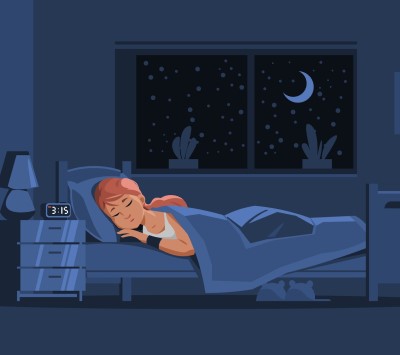
1) Get the best possible sleep you can every night
Since being over tired is a possible risk factor for both IBS and sleepwalking, I had to put this at the top of the list.
You really need to avoid doing anything that’s going to make it tougher to get restful sleep at night. Start with sleep hygiene, the everyday things that set the stage for quality sleep.
For better sleep hygiene, you should:
- Wake up and go to bed at the same time every day
- Physical activity
- Avoid naps
- Avoid large meals, alcohol, and stimulants such as caffeine before bedtime
- Maintain a bedtime routine
- Avoid TVs, laptops, and other electronics near bedtime
- Keep your bedroom dark, cool, quiet, & relaxing

2) Stress management
It’s important for you do whatever you can to bring down the overall amount of stress in your life since it’s another known trigger for IBS and sleepwalking.
There’s lots of things that can help stress – lifestyle changes, aerobic exercise, and relaxation exercises. Getting regular sleep will also help.
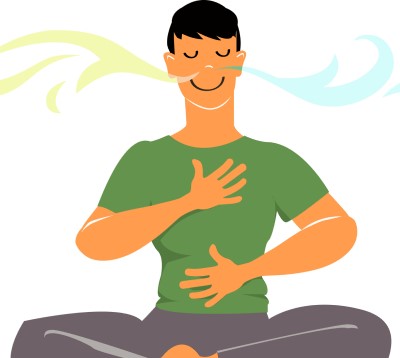
3) Relaxation exercises
Since stress is such a big factor for IBS, sleepwalking, and sleep, try including relaxation exercises as part of your normal bedtime routine.
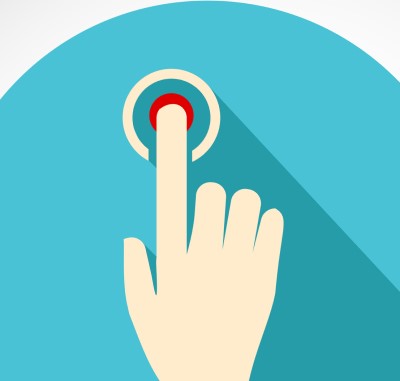
4) Avoid known triggers
Whether it’s specific foods or stressful situations, start paying more attention so you can avoid anything that may worsen your IBS or trigger sleepwalking.
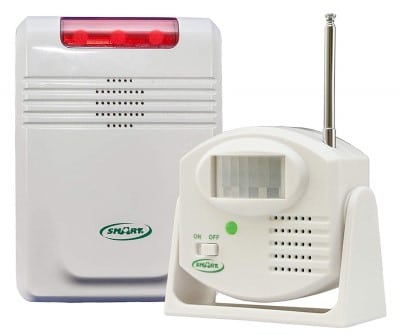
5) Try a sleepwalking prevention device
There are a variety of devices designed to sound an alert when someone gets out of bed or to provide a simple barrier. Your choices include gates, safety door locks, bedroom door alarms, motion sensors, and floor mat alarms.
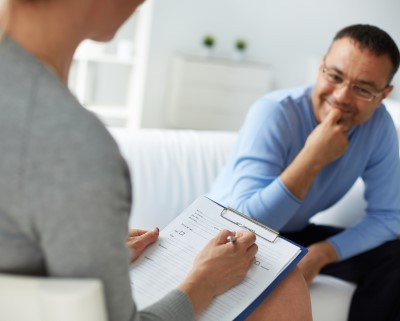
6) Counseling
A mental health professional such as a psychotherapist can help figure out ways to lower stress and anxiety that could be a sleepwalking trigger for you. They can also help with other mental health challenges.
A specialized type of counseling, cognitive behavioral therapy, can help identify and assist with changing thoughts, beliefs, and behaviors. It’s one of the most effective treatments for anxiety, depression, stress, insomnia, and many other challenges.
Learn more:
Cognitive Behavioral Therapy for IBS (IFFGD)

7) See a doctor
If you’re not seeing any progress or if things are getting worse, it’s definitely worth seeing your doctor and a gastroenterologist. They can check for other causes and risk factors you may not have thought of. You may also be referred to a sleep specialist for sleepwalking.
You may also be interested in:
IBS:
8 reasons your IBS is worse at night and what to do
Is IBS pain at night ruining your sleep? – 12 things to try
13 things to try if IBS has got you too depressed to sleep
Can CBD worsen IBS and insomnia?
Sleepwalking:
5 sleepwalking prevention devices worth a try
Useful sleepwalking aids and prevention devices
Can sleeping pills help with sleepwalking?
Can CBD help with sleepwalking?
Is sleepwalking a sign of something more serious
Sources:
The epidemiology of irritable bowel syndrome. Clin Epidemiol. 2014; 6: 71–80. (source)
Irritable Bowel Syndrome (IBS), NIH website (source)
Sleep Walking: Facts, Causes, Symptoms & Treatment, American Sleep Association website (source)
Sleep disturbances in irritable bowel syndrome: a systematic review. Neurogastroenterol Motil. 2017 Mar;29(3). (source)
Prevalence of sleep disorder in irritable bowel syndrome: A systematic review with meta-analysis. Saudi J Gastroenterol. 2018 May-Jun; 24(3): 141–150. (source)
Impact of psychological stress on irritable bowel syndrome. World J Gastroenterol. 2014 Oct 21; 20(39): 14126–14131. (source)
Is there a link between irritable bowel syndrome (IBS) and anxiety?, 2023, MedicalNewsToday (source)
Is Restless Legs Syndrome Involved in Ambulation Related to Sleepwalking? Sleep. 2016 Apr 1; 39(4): 955–956. (source)
Could poor sleep be aggravating your IBS symptoms?, London Gastroenterology Centre website (source)
Lack Of Sleep Can Provoke Sleepwalking, Study Shows, 2008, ScienceDaily (source)
Reciprocal relationship between acute stress and acute fatigue in everyday life in a sample of university students. Biol Psychol. 2015 Sep;110:42-9. (source)
Relationship between Patterns of Alcohol Consumption and Gastrointestinal Symptoms among Patients with Irritable Bowel Syndrome. Am J Gastroenterol. 2013 Feb; 108(2): 270–276. (source)
Parasomnias: Sleepwalking, Cedars-Sinai website (source)
Medication induced sleepwalking: A systematic review. Sleep Med Rev. 2018 Feb;37:105-113. (source)
“Sleepwalking More Likely With Several Psychiatric Disorders”, 2012, Psychiatry Online (source)
Connect with us:
About Us
Better Sleep Simplified® was founded as a place for you to get clear and well-researched information.
Our goal is to make sure you know about your options so that you take action sooner rather than later.
Check us out on YouTube:
Watch and Learn
Helpful sleep tips, interesting sleep facts and statistics you want to know about
Affiliate Disclosure
This site is a participant in the Amazon Services LLC Associates Program and other affiliate advertising programs designed to provide a means for sites to earn advertising fees by advertising and linking to them.
Important: BetterSleepSimplified.com is for informational purposes only and is not intended or implied to be a substitute for professional medical advice, diagnosis, or treatment. Always consult a physician for sleep and health concerns. See additional information.
